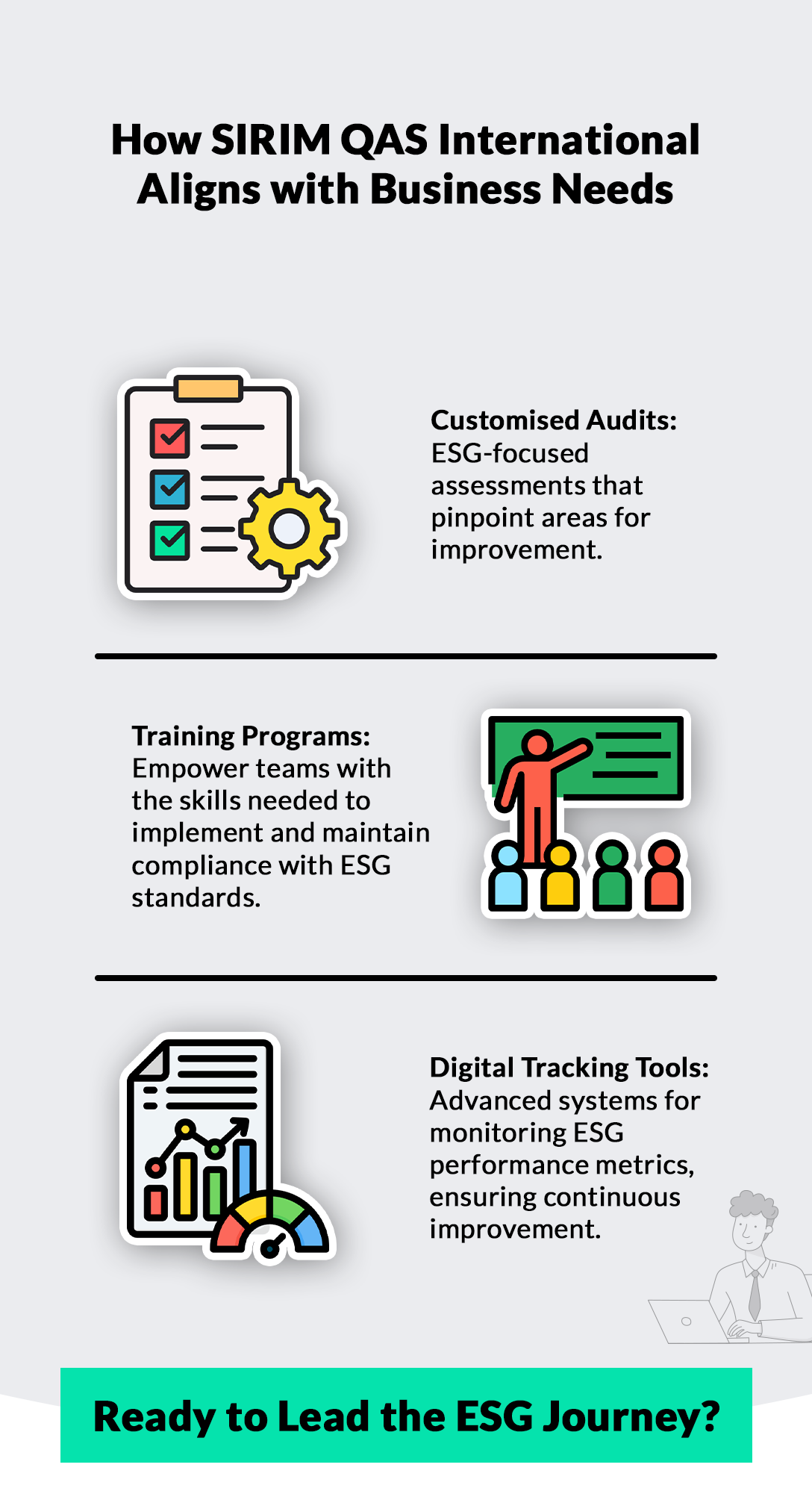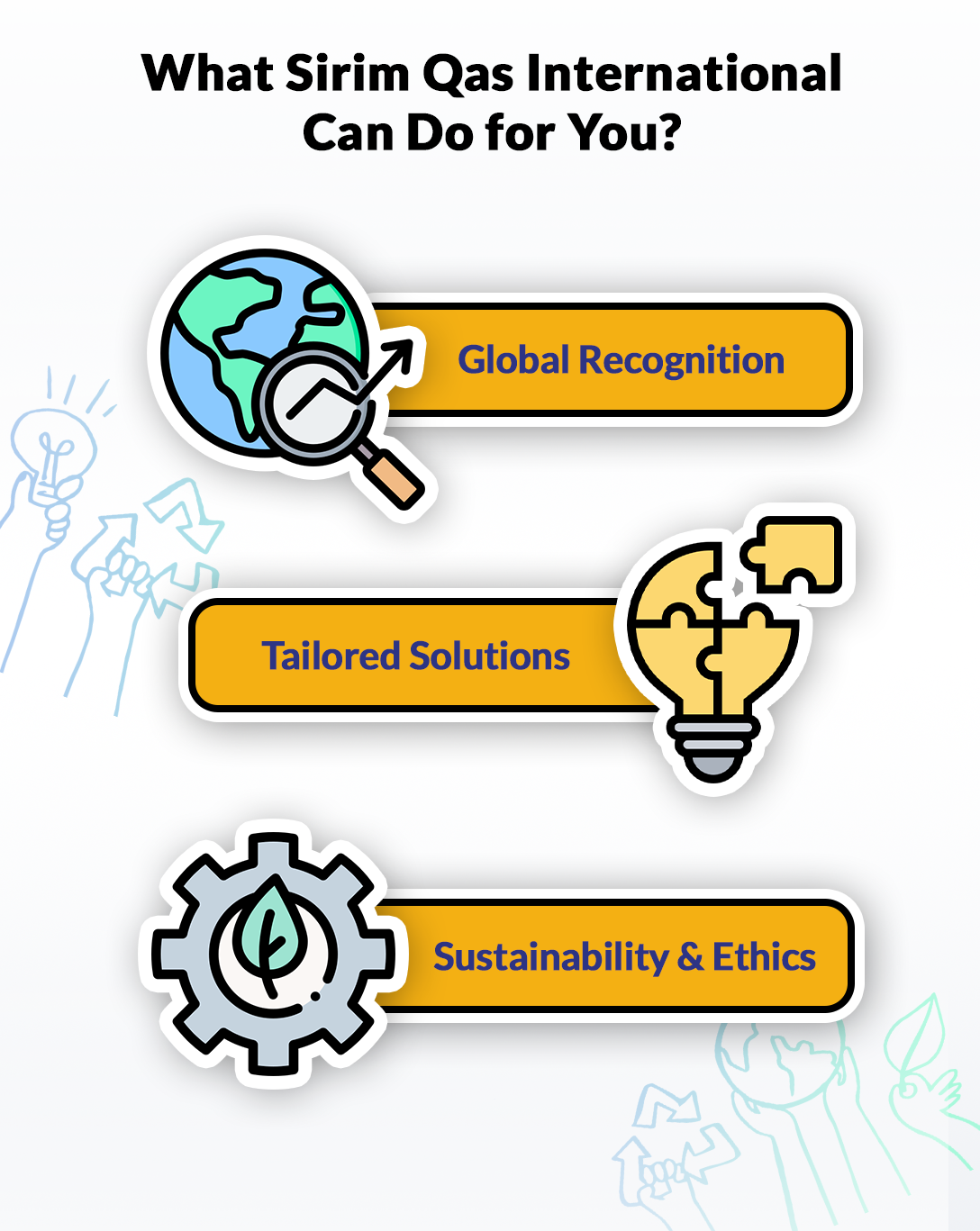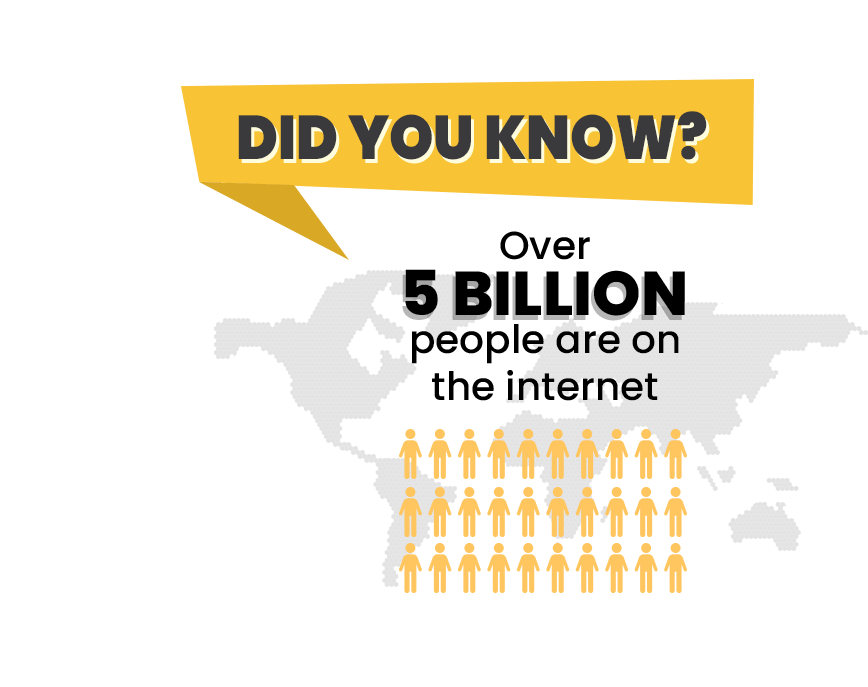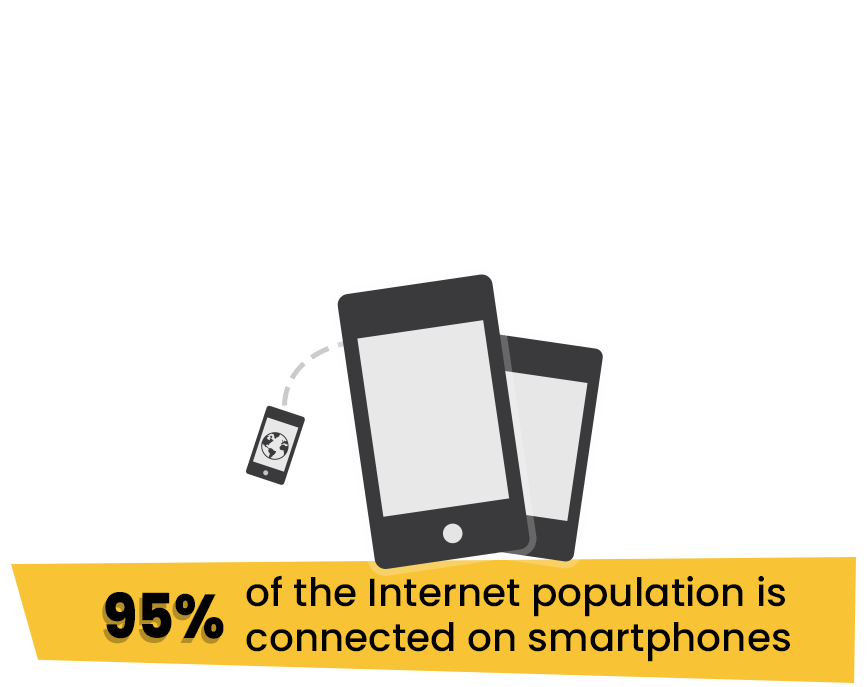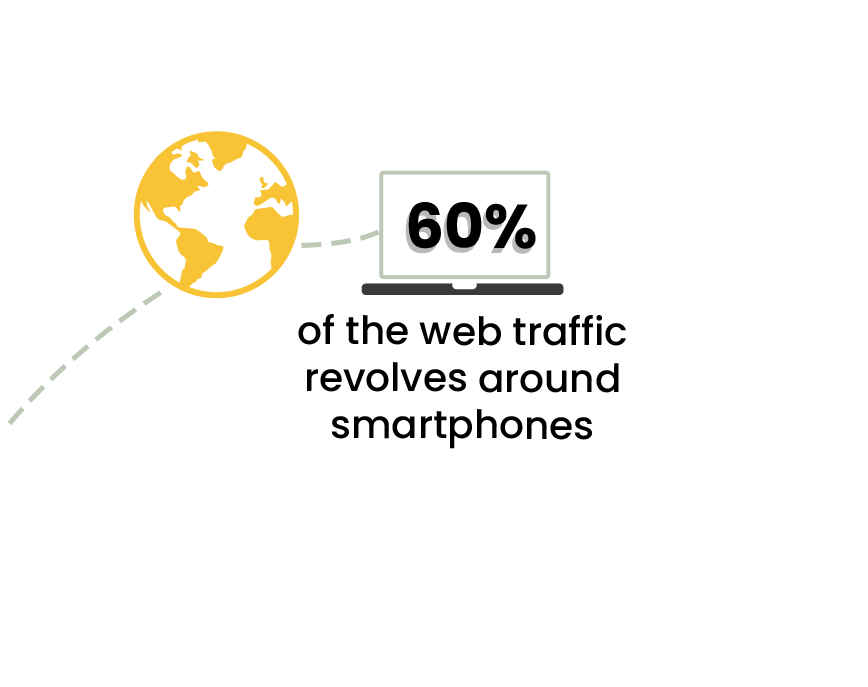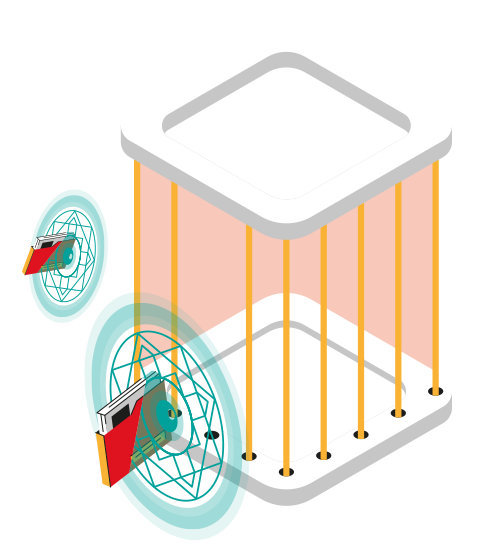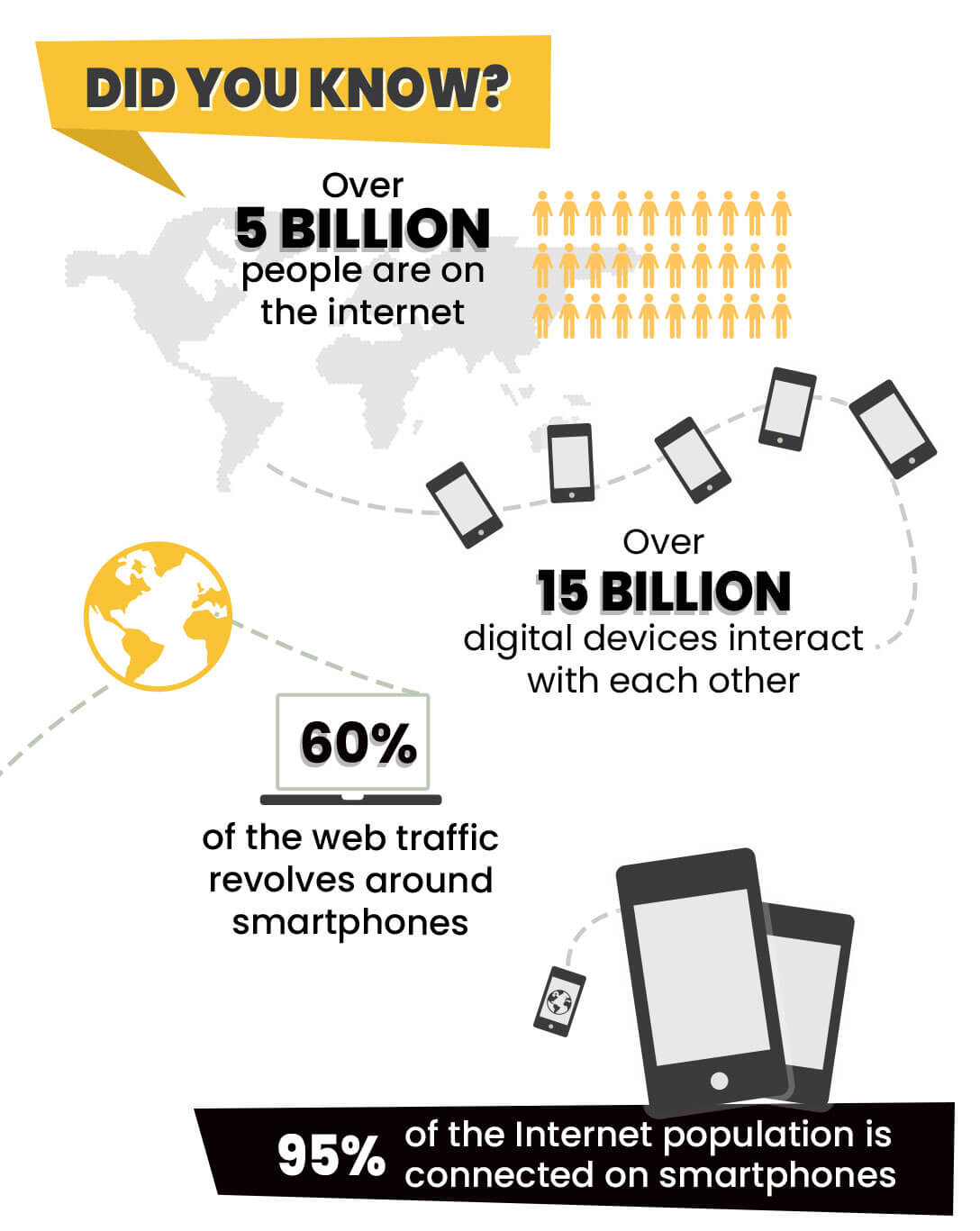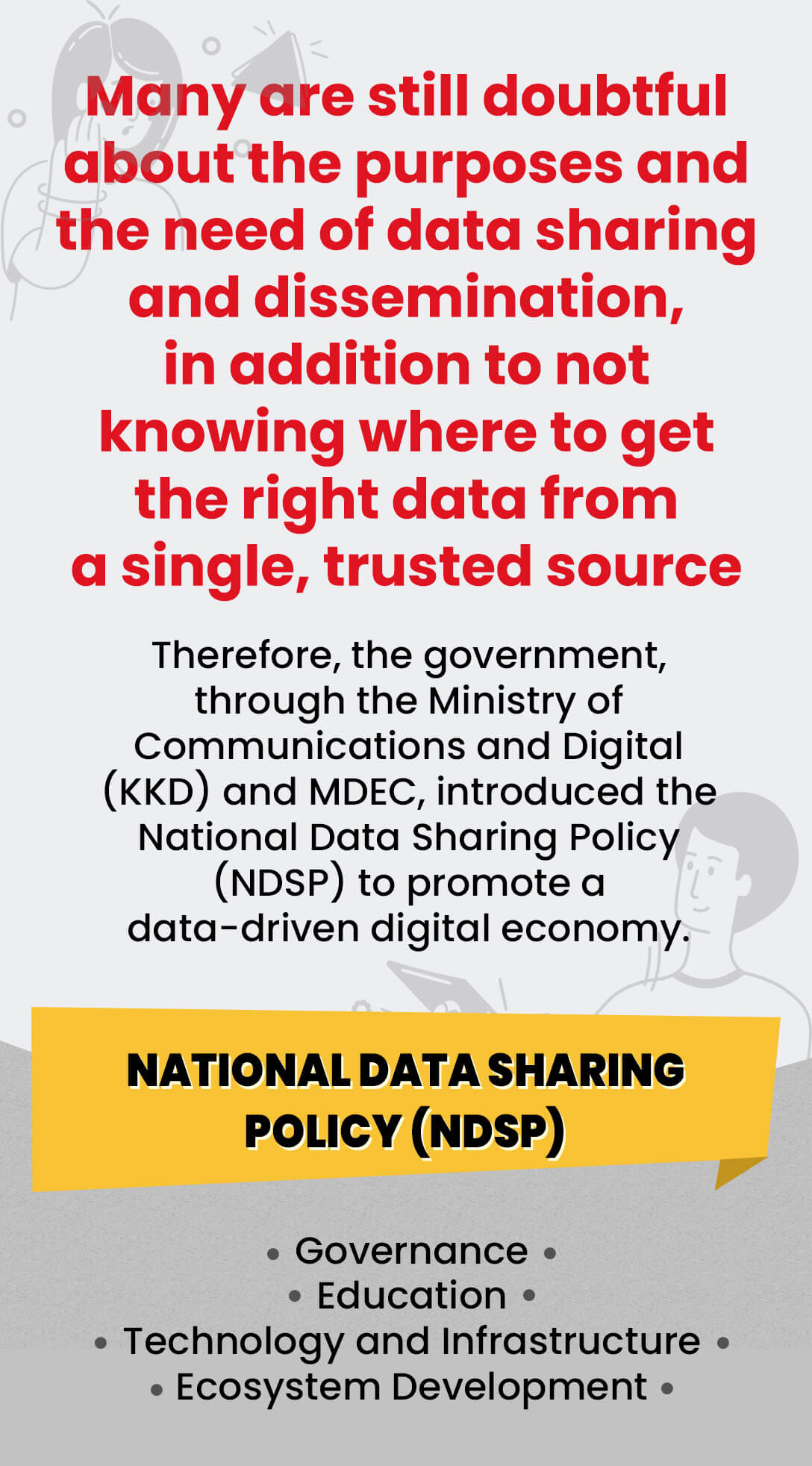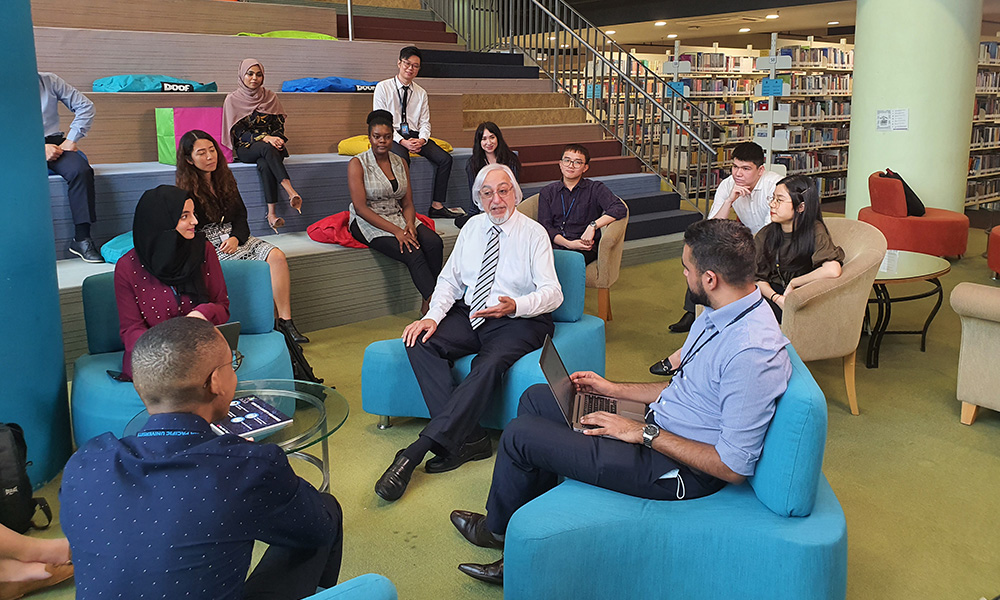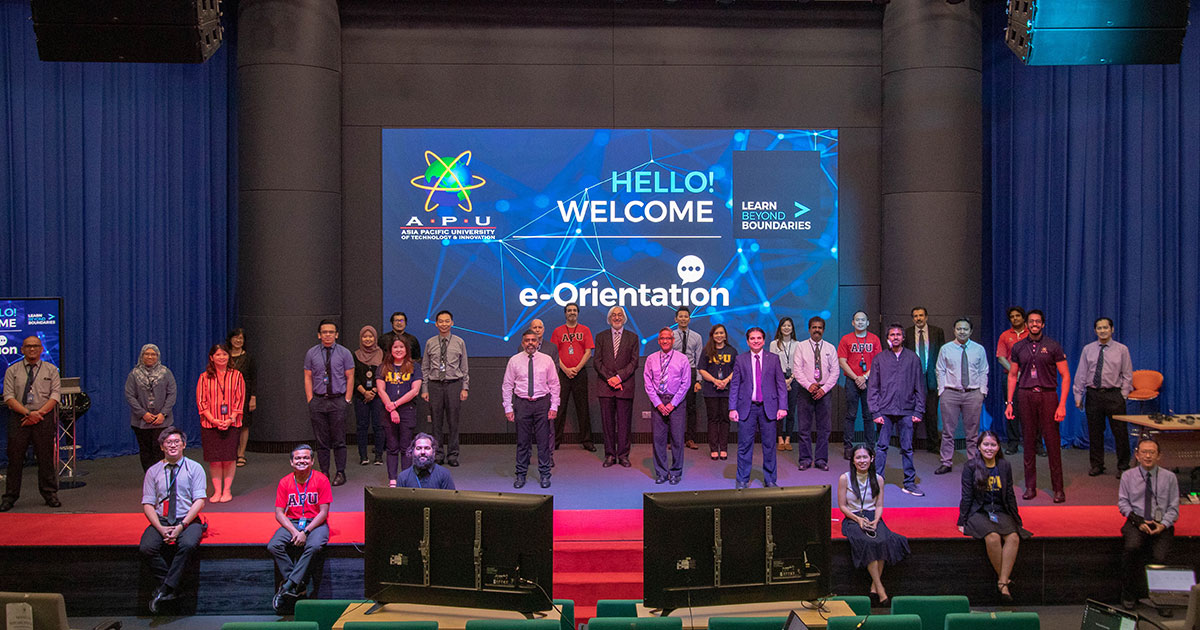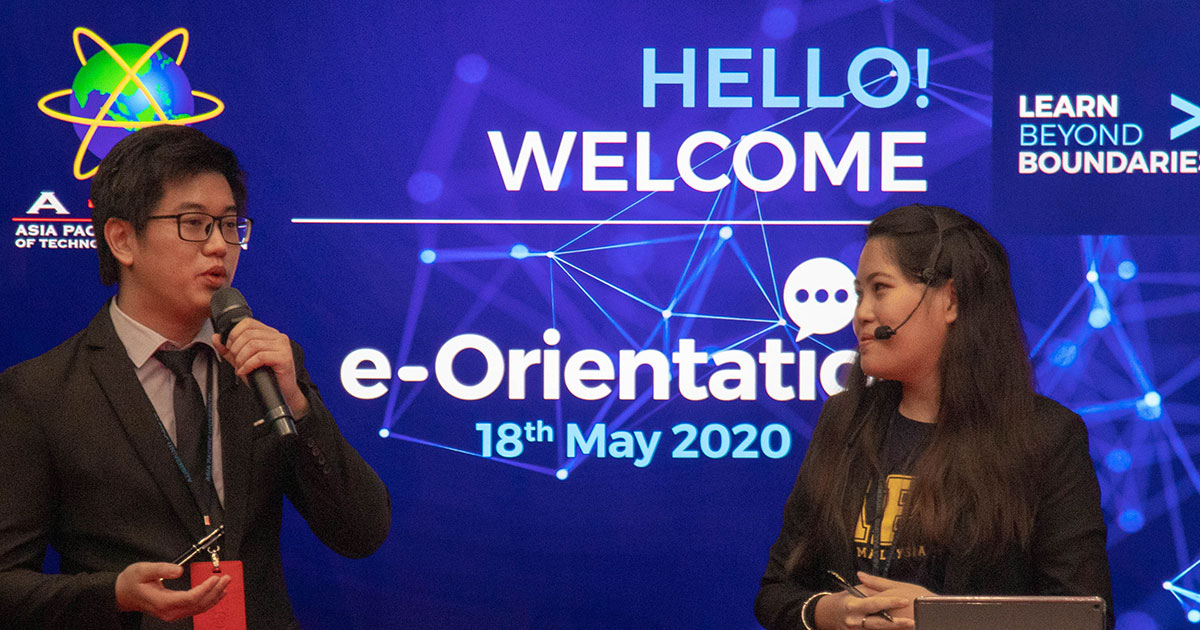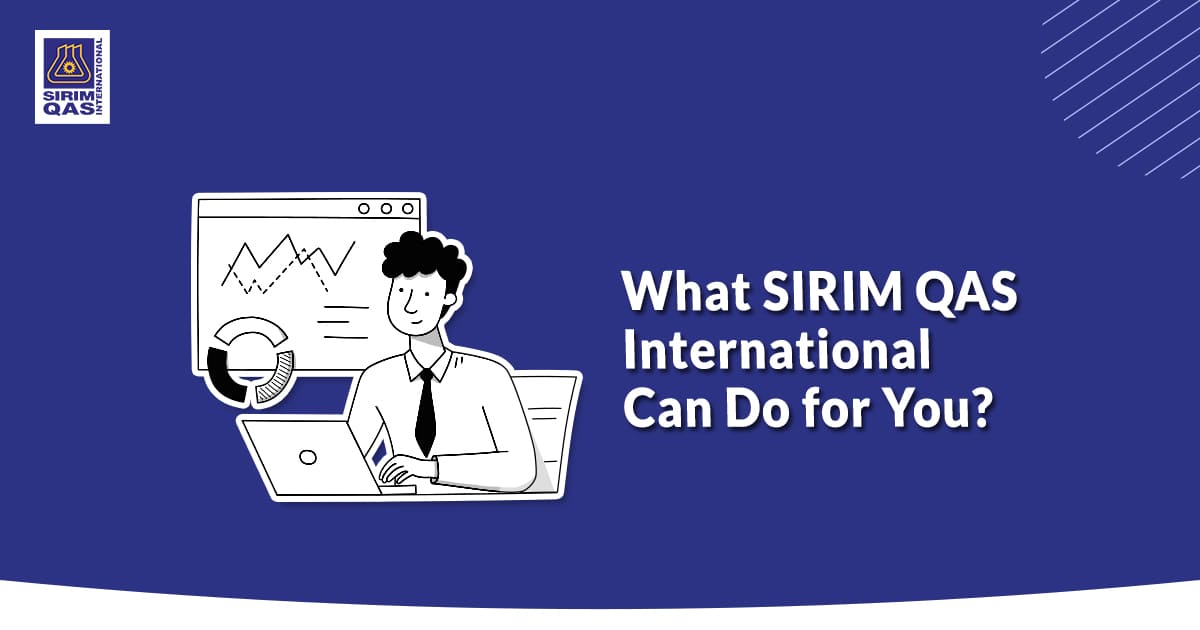
ESG is no longer just a trend; it’s the future of business.

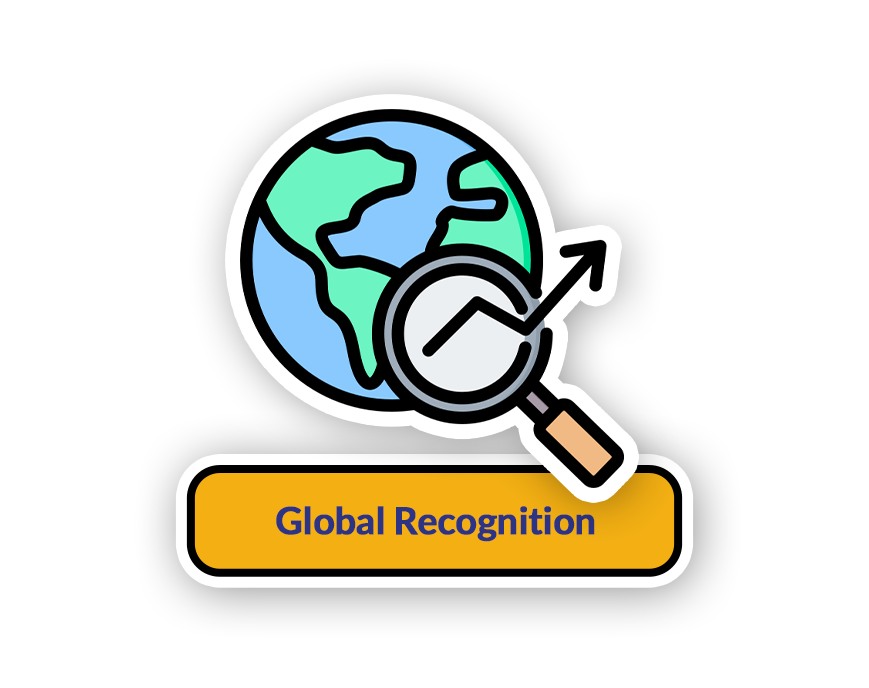

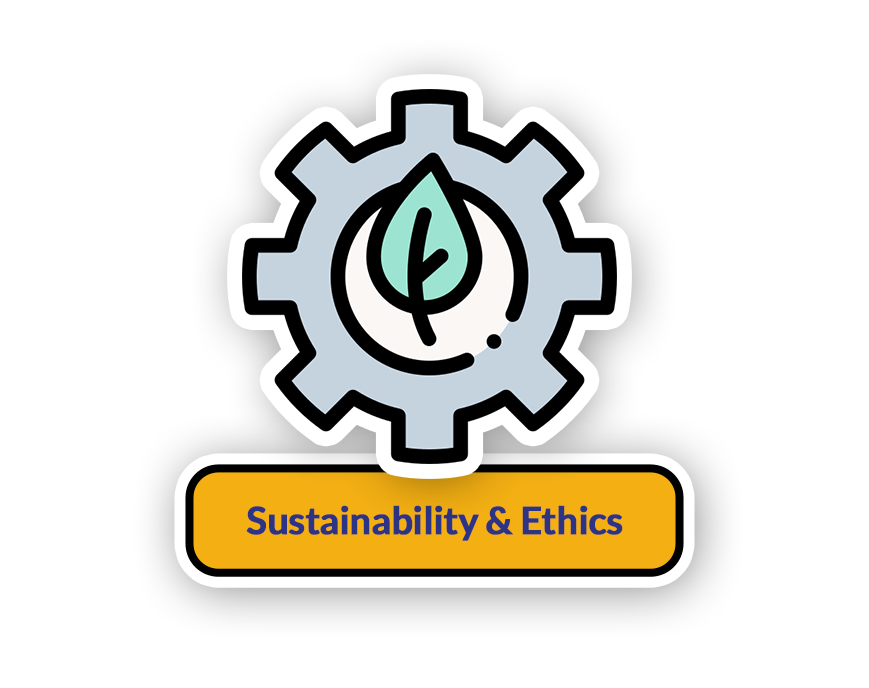

How SIRIM’s Certifications Can Put Your Business on the Global ESG Map?
SIRIM’s ISO standards act as a universal rulebook for businesses. Think of it like baking a cake: if everyone has their own method, the outcome could be inconsistent. ISO, however, provides a standard recipe that ensures the cake tastes the same every time, no matter where it’s baked. When businesses and products adhere to ISO standards, you can trust that everything operates smoothly, safely, and consistently.
Just as ISO standards bring consistency to industries, ESG (Environmental, Social, and Governance) standards are becoming increasingly crucial in today’s global business landscape.

As Malaysia’s leading testing, inspection and certification body, SIRIM QAS International provides globally recognised certifications tailored to the evolving needs of modern businesses. These certifications not only facilitate compliance but also position organisations as leaders in sustainability.
[AD] Which area of ESG do you believe companies should prioritise the most?
— malaysiakini.com (@malaysiakini) February 17, 2025
[AD] Why SIRIM QAS International?
— malaysiakini.com (@malaysiakini) February 17, 2025
Building a Holistic Ecosystem
SIRIM QAS International goes beyond certifications, creating an ecosystem that promotes eco-friendly solutions and sustainable lifestyles. From compliance with global standards to innovative solutions like the SIRIM 55:2023 ESG Management System Certification, SIRIM empowers businesses to align with global sustainability goals while maintaining a competitive edge.
SIRIM 55:2023 ESG Management System Certification
At the heart of SIRIM’s ESG-related services lies the newly launched SIRIM 55:2023 ESG Management System Certification. This provides businesses with a structured approach to implementing, measuring, and enhancing ESG practices. It is a holistic tool designed to drive strategic decision-making and foster accountability across operations.







Environmental
Be Part of the Green Revolution
Read more
- ISO 14001 (Environmental Management System): Establishes robust frameworks for managing environmental impact, resource efficiency, and waste reduction.
- ISO 50001 (Energy Management System): Enables organisations to optimise energy use, leading to reduced carbon footprints and operational costs.
- Green Label Certification: Highlights environmentally friendly products, boosting consumer trust in sustainable practices.
- ISO 14067 (Product Carbon Footprint): Provides a structured approach to measuring and reducing the carbon footprint of products.


Social Responsibility Standards
Make a Positive Impact
Read more
- ISO 26000 (Social Responsibility): A voluntary guidance standard helping businesses to operate ethically, with a focus on human rights, fair labor practices, and community engagement.
- ISO 45001 Occupational Health and Safety Management Systems (OHSMS): helps organisations prevent work-related injuries and illnesses.
- IQNet SR10: Embeds social responsibility into business management systems.
- SIRIM 50 (Social Accountability): Focuses on workplace safety, ethical labor practices, and employee well-being.
- Workplace Safety and Health Audits: Align operations with best practices to protect employees and ensure compliance with safety regulations.


Governance and Ethical Compliance
Strengthening Trust in Your Business
Read more
- ISO 37001 (Anti-Bribery Management Systems): Strengthens corporate governance by preventing, detecting, and responding to bribery risks.
- ISO 37301 (Compliance Management System): Guides organisations in regulatory adherence, ethical practices, and risk management.
- Supply Chain Audits: Ensures ethical sourcing, traceability, and adherence to ESG mandates throughout the value chain.
- RSPO Supply Chain Certification: Promotes sustainable practices in the palm oil industry.
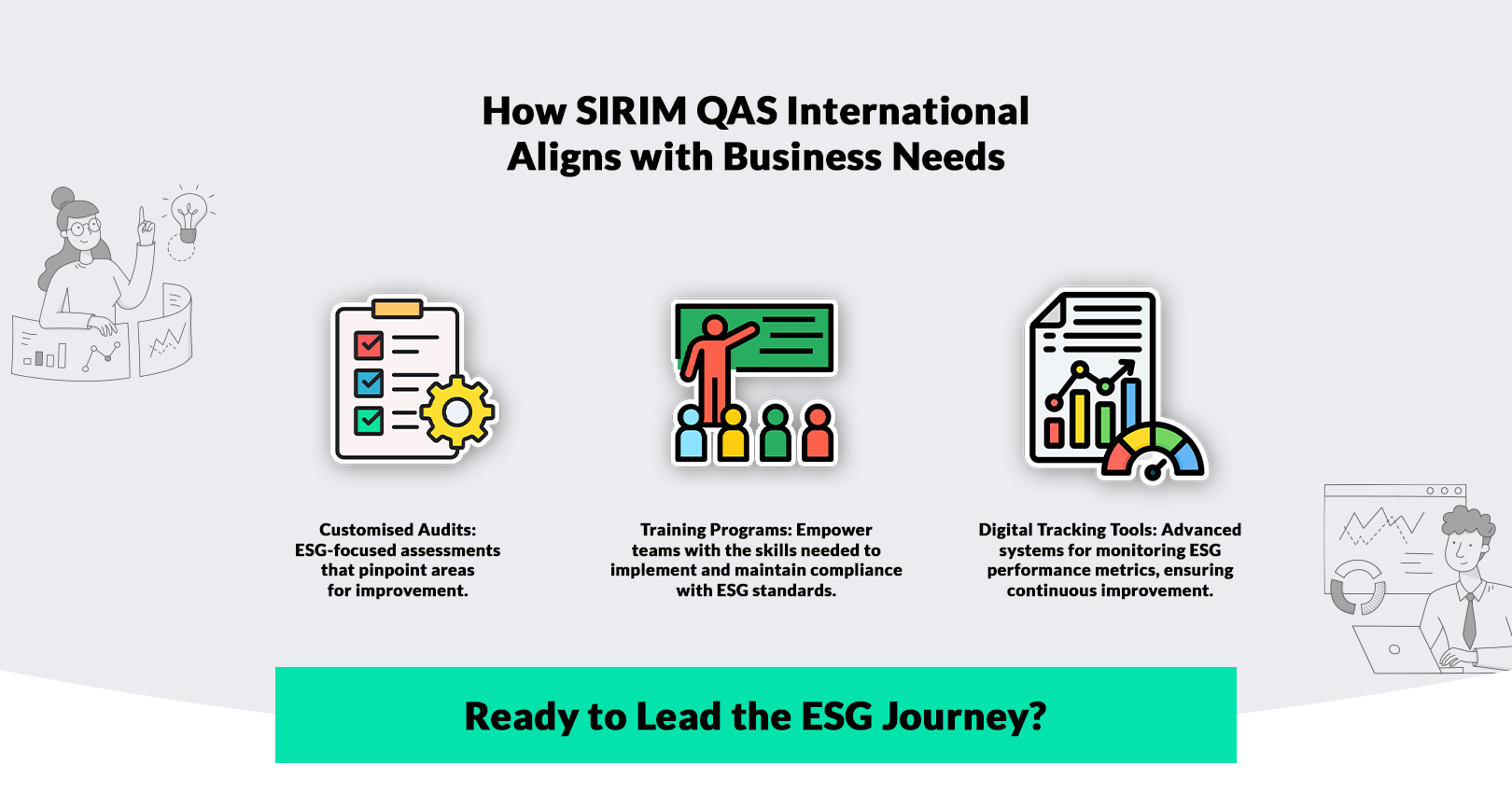

How SIRIM’s Certifications
Can Put Your Business on
the Global ESG Map?
SIRIM’s ISO standards act as a universal rulebook for businesses. Think of it like baking a cake: if everyone has their own method, the outcome could be inconsistent. ISO, however, provides a standard recipe that ensures the cake tastes the same every time, no matter where it’s baked. When businesses and products adhere to ISO standards, you can trust that everything operates smoothly, safely, and consistently.
Just as ISO standards bring consistency to industries, ESG (Environmental, Social, and Governance) standards are becoming increasingly crucial in today’s global business landscape.
[AD] Why SIRIM QAS International?
— malaysiakini.com (@malaysiakini) February 17, 2025
What SIRIM QAS
International
Can Do for You?



As Malaysia’s leading testing, inspection and certification body, SIRIM QAS International provides globally recognised certifications tailored to the evolving needs of modern businesses. These certifications not only facilitate compliance but also position organisations as leaders in sustainability.
SIRIM 55:2023 ESG Management
System Certification
At the heart of SIRIM’s ESG-related services lies the newly launched SIRIM 55:2023 ESG Management System Certification. This provides businesses with a structured approach to implementing, measuring, and enhancing ESG practices. It is a holistic tool designed to drive strategic decision-making and foster accountability across operations.
Building a
Holistic Ecosystem
SIRIM QAS International goes beyond certifications, creating an ecosystem that promotes eco-friendly solutions and sustainable lifestyles. From compliance with global standards to innovative solutions like the SIRIM 55:2023 ESG Management System Certification, SIRIM empowers businesses to align with global sustainability goals while maintaining a competitive edge.
[AD] Which area of ESG do you believe companies should prioritise the most?
— malaysiakini.com (@malaysiakini) February 17, 2025







Environmental
Be Part of the Green Revolution
Read more
- ISO 14001 (Environmental Management System): Establishes robust frameworks for managing environmental impact, resource efficiency, and waste reduction.
- ISO 50001 (Energy Management System): Enables organisations to optimise energy use, leading to reduced carbon footprints and operational costs.
- Green Label Certification: Highlights environmentally friendly products, boosting consumer trust in sustainable practices.
- ISO 14067 (Product Carbon Footprint): Provides a structured approach to measuring and reducing the carbon footprint of products.


Social Responsibility Standards
Make a Positive Impact
Read more
- ISO 26000 (Social Responsibility): A voluntary guidance standard helping businesses to operate ethically, with a focus on human rights, fair labor practices, and community engagement.
- ISO 45001 Occupational Health and Safety Management Systems (OHSMS): helps organisations prevent work-related injuries and illnesses.
- IQNet SR10: Embeds social responsibility into business management systems.
- SIRIM 50 (Social Accountability): Focuses on workplace safety, ethical labor practices, and employee well-being.
- Workplace Safety and Health Audits: Align operations with best practices to protect employees and ensure compliance with safety regulations.


Governance and Ethical Compliance
Strengthening Trust in Your Business
Read more
- ISO 37001 (Anti-Bribery Management Systems): Strengthens corporate governance by preventing, detecting, and responding to bribery risks.
- ISO 37301 (Compliance Management System): Guides organisations in regulatory adherence, ethical practices, and risk management.
- Supply Chain Audits: Ensures ethical sourcing, traceability, and adherence to ESG mandates throughout the value chain.
- RSPO Supply Chain Certification: Promotes sustainable practices in the palm oil industry.
